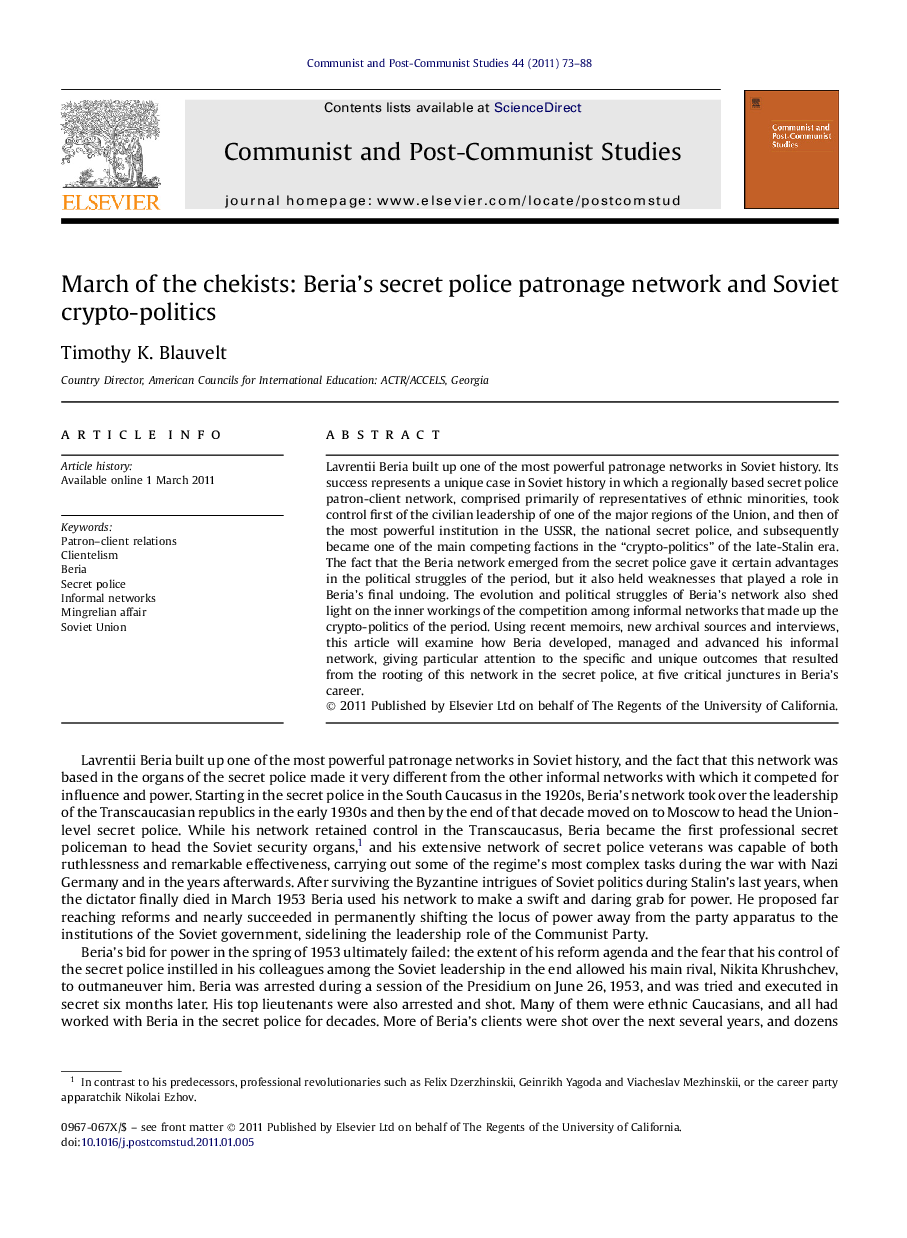| Article ID | Journal | Published Year | Pages | File Type |
|---|---|---|---|---|
| 1046445 | Communist and Post-Communist Studies | 2011 | 16 Pages |
Lavrentii Beria built up one of the most powerful patronage networks in Soviet history. Its success represents a unique case in Soviet history in which a regionally based secret police patron-client network, comprised primarily of representatives of ethnic minorities, took control first of the civilian leadership of one of the major regions of the Union, and then of the most powerful institution in the USSR, the national secret police, and subsequently became one of the main competing factions in the “crypto-politics” of the late-Stalin era. The fact that the Beria network emerged from the secret police gave it certain advantages in the political struggles of the period, but it also held weaknesses that played a role in Beria’s final undoing. The evolution and political struggles of Beria’s network also shed light on the inner workings of the competition among informal networks that made up the crypto-politics of the period. Using recent memoirs, new archival sources and interviews, this article will examine how Beria developed, managed and advanced his informal network, giving particular attention to the specific and unique outcomes that resulted from the rooting of this network in the secret police, at five critical junctures in Beria’s career.
